11 start with A start with A
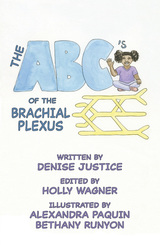
Medical terms used in the doctor’s office can be confusing, especially for the condition of Neonatal Brachial Plexus Palsy and/or Peripheral Nerve Injury. This book is written by a highly experienced therapist and formatted effectively for reference, review, or new learning of the medical terms. In addition, the accompanying hand-drawn illustrations offer attractive colorful pictorial representations of the technical concepts.
From the names and anatomy of individual nerves to multiple surgical treatment options, this book will help patients and caretakers decode the words of doctors, starting with every letter of the alphabet. If you are seeking the knowledge help with the diagnosis and treatment of your Brachial Plexus condition, this book is for you!

Absinthe 23, guest-edited by Tamar M. Boyadjian, invites translators to move beyond purely prescriptive applications of translation, interpretation, and the localization of national literatures—and the mere translation of a “minor” literature into a major language—to consider their translations of contemporary Armenian literature as part of larger, non-compartmentalized cultural and theoretical frameworks and disciplines such as comparative literature, Mediterranean studies, Postcolonial studies, Diaspora studies, Trauma studies, and others. The issue includes contemporary Armenian texts from living authors, chosen as significant works that challenge, shape, and complicate conversations on transcultural analysis, and theories and practices related to translating.
Absinthe: A Journal of World Literature in Translation publishes foreign literature in English translation, with a particular focus on previously untranslated contemporary fiction, poetry, and creative non-fiction by living authors. The magazine has its home in the Department of Comparative Literature at the University of Michigan and is edited by graduate students in the Department, as well as by occasional guest editors.
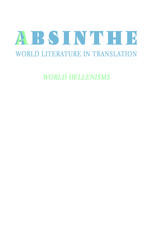
Absinthe 24 pushes and prods Hellenism beyond its geographic and cultural comfort zones, and sets it tumbling off beyond both internal and external borders of its nation-state, in a wide-ranging but always site-specific and localized itinerary. At each stop along the way, this Greekness finds its plurals—hence the “Hellenisms” of the title. While they present no unified topography, tongue or even topic, these Hellenisms map out the contours of a shared conversation. Today’s Hellenism isn’t limited to Hellas, nor to the Hellenic language. The selected texts in this volume explore Greece from the perspective of visitors, displaced persons, and marginalized people looking in, or, conversely, from the perspective of locals striving to break out.
Absinthe: A Journal of World Literature in Translation publishes foreign literature in English translation, with a particular focus on previously untranslated contemporary fiction, poetry, and creative non-fiction by living authors. The magazine has its home in the Department of Comparative Literature at the University of Michigan and is edited by graduate students in the Department, as well as by occasional guest editors.
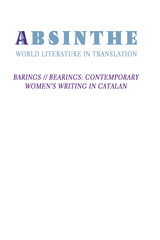
Edited by Megan Berkobien and María Cristina Hall, Barings // Bearings collects sixteen pieces of contemporary women’s writing in Catalan together with the brilliantly understated illustrations of the artist Elisa Monsó.
This special issue of Absinthe witnesses a living, Catalan language through the emotional labor of translation. It is also a testament to the thriving worlds of women’s writing in Catalan, with time-travelling fiction by Bel Olid (tr. Bethan Cunningham), regrets on pregnancy sublimated into an airborne taxi ride in a story by Tina Vallès (tr. Jennifer Arnold), Mireia Vidal-Conte’s poetry reflecting on Virginia Woolf’s suicide (tr. María Cristina Hall), a story of revenge on an abusive elderly woman by Anna Maria Villalonga (tr. Natasha Tanna), as well as reflections on war, bookstores, and generational conflict in post-Franco Spain. These often surreal pieces of Catalan fiction are informed by several essays and works of literary memoir, including those by Marta Rojals (tr. Alicia Meier) on the state of the Catalan language and Najat El Hachmi (tr. Julia Sanches) on the conditions of growing up in Catalonia as the daughter of Moroccan parents. These latter pieces resist and explore the contours of multilingualism, highlighting the intra- and interlingual reality of spoken Catalan alongside Spanish and Amazigh. Barings // Bearings invokes the feeling of a people through the work of a new generation of translators.
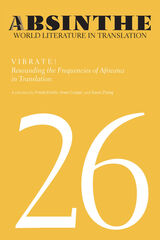
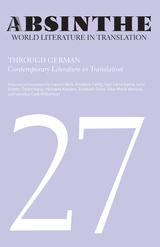
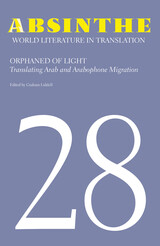
Absinthe 28: Orphaned of Light features contemporary literature of migration translated from and to Arabic. In short stories, creative nonfiction essays, poetry, and selections from novels, a multiplicity of migration experiences is brought to the fore: life in diaspora, undocumented labor, refugeehood, human trafficking, internal displacement, exile.
This issue brings together names familiar to readers of Arabic literature in translation, such as Ghassan Kanafani and Saadi Youssef, with writers making their English-language debuts, such as Dearborn, MI-based Kurdish Iraqi poet Gulala Nouri and Libyan novelist Mohamad Alasfar. Likewise, the issue includes veteran translators Marilyn Booth, Nancy Roberts, and Khaled Mattawa alongside newcomers, several of them graduate students at the University of Michigan.
Each piece is accompanied by a translator’s reflection that meditates on the work’s themes as well as the creative process of translation, and the issue’s poetry is presented in a side-by-side Arabic-English format.
Absinthe 28 comes to us at a time when, according to the UN, one in every 78 people on earth is displaced. This collection serves as a reminder that translation and migration are inextricably linked.

Absinthe 29: Translating Jewish Multilingualism showcases the variety of languages and genres in which modern Jewish writers have expressed themselves. Spanning short stories, essays, poetry, and selections from novels, the selection of literary works featured in this issue of Absinthe cuts across distinctions between European and non-European literary traditions and addresses diverse themes, including social class, gender, immigration, religious traditions, love and marriage, and the act of writing itself.
Rather than consider disparate Jewish languages and histories in isolation, we bring them into conversation within an open-ended framework that explores Jewish multilingualism in the modern world. The multilingual narrative of Jewish modernity told through them, in seven languages, spans from the 1880s to the 2020s.
Its wide geographical distribution ranges from Tel Aviv to São Paulo through Buenos Aires, Istanbul, Thessaloniki, Livorno, Warsaw, Prague, and Chicago. Each text and context exhibits different aspects of the Jewish encounter with the conditions of modern society, exemplifying the ways in which Jewish writing engages and negotiates different cultures and traditions.
The new volume of Absinthe foregrounds the multilingual legacy of Jewish migration and diasporic life that has become ubiquitous in modern Jewish writing, and it is evident in the enriching and disruptive presence of multiple languages and literary traditions in each of these texts. The title of this volume, Translating Jewish Multilingualism, refers both to the English translations of these texts and to the processes of translation, mediation, and hybridization encapsulated in the works themselves.
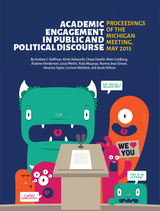
To answer these questions and many more, the University of Michigan hosted a Michigan Meeting that involved over 40 speakers, including 4 University Presidents, and 225 registrants. This report summarizes that three-day meeting with a focus on four key themes. First, what is engagement and should we do it? Second, what are the ground rules for public and political engagement? Third, what are some models that have worked and what can we learn from them? Fourth and finally, what are the obstacles to engagement and how can they be overcome?
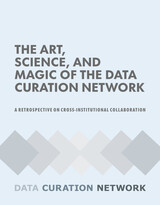
The Art, Science, and Magic of the Data Curation Network: A Retrospective on Cross Institutional Collaboration captures the results of a project retrospective meeting and describes the necessary components of the DCN’s sustained collaboration in the hopes that the insights will be of use to other collaborative efforts. In particular, the authors describe the successes of the community and challenges of launching a cross-institutional network. Additionally, this publication details the administrative, tool-based, and trust-based structures necessary for establishing this community, the “radical collaboration” that is the cornerstone of the DCN, and potential future collaborations to address shared challenges in libraries and research data management. This in-depth case study provides an overview of the critical work of launching a collaborative network and transitioning to sustainability. This publication will be of special interest to research librarians, data curators, and anyone interested in academic community building.
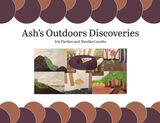
READERS
Browse our collection.
PUBLISHERS
See BiblioVault's publisher services.
STUDENT SERVICES
Files for college accessibility offices.
UChicago Accessibility Resources
home | accessibility | search | about | contact us
BiblioVault ® 2001 - 2024
The University of Chicago Press









